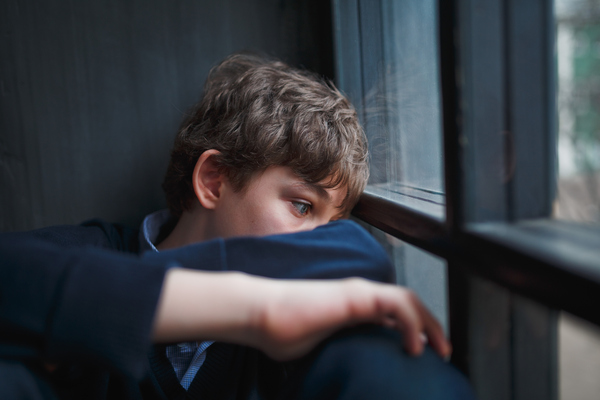“You’ll live”

One of my memories growing up is of my dad telling me, after I had sustained what I thought was a serious injury, “you’ll live.” That’s parent speak for "suck it up, buttercup." A pastor friend of mine, reminiscing about his own childhood, said he was going to put three short lines on his dad’s tombstone; “Get up, walk it off, you’ll be fine.” I think that, for the most part, these parental admonitions are almost never shared with children anymore. And that’s too bad.
In her recent podcast Honestly, journalist Bari Weiss said "American kids are the freest, most privileged kids in all of history. They are also the saddest, most anxious, depressed, and medicated generation on record." Author Abagail Shrier, in her book Bad Therapy,* points out that 42% of Generation Z have a mental health diagnosis compared to the national average of 20%. The mental health profession has “so dialed down mental disorder that you'll see that it applies to basically the entire experience of the human condition," said Shrier. "Heartbreak? No, that's depression. Worry, no, that's anxiety. Shyness, no, that's social anxiety.”
Picture the following scenario: your son or daughter has stomach pain which becomes serious enough to take him or her to an emergency care facility to rule out a possible appendicitis. The verdict comes back as nothing serious, and a prescription is given. However, before you leave the doctor asks you to wait a few moments for the nurse to conduct a mental health screening. Soon a nurse arrives wielding a clipboard and asks if you wouldn’t mind leaving the room for privacy purposes. The following is a complete and unedited list of questions issued by the National Institute of Mental Health to be answered by your twelve year old child:
-
1. In the past few weeks have you wished you were dead?
-
2. In the past few weeks, have you felt that you or your family would be better off if you were dead?
-
3. In the past week, have you been having thoughts about killing yourself?
-
4. Have you ever tried to kill yourself? If yes, how? When?
-
5. Are you having thoughts of killing yourself right now? If yes, please describe.
This scenario actually happened to Shrier when she brought her 12-year-old to urgent care for a stomach ache (which turned out to be dehydration) after returning home from summer camp. After reading these probing inquires, my first thought was, “well, if a child hadn’t been thinking about suicide before, they certainly are now!” It angered me to think that this is happening every day, all over the country, and placing thoughts in the minds of kids that should never be entertained.
There are many factors that help to explain the “mental health crisis” among children and adolescents in America today. Divorce, social media, lack of discipline, attack on authority, and the failure of parents to prepare their children for independent living. Parents have increasingly surrendered their authority to the “experts.”
Shrier writes, “it is not unheard of for boys of sixteen or seventeen to put off getting a driver’s license on the grounds that driving is scary. Or for college juniors to invite mom along to their twenty-first birthday celebration. They are leery of the risks and freedoms that are all but synonymous with growing up.”
The present generation seems to operate on the basis of fear. They don’t want to leave home, they don’t want to get married, they don’t want to have kids because that means responsibility. For those who’ve been conditioned to think world revolves around them it’s a scary prospect. Parents who live for their children and whose happiness depends on it, end up unable to truly enjoy them and actually handicap their kids’ ability to cope with life. Your goal as parents is to work yourself out of a job, preparing your children for life in the real world.
Shrier makes a compelling case that the present therapy culture is actually harming more than helping and providing less cure while creating more victims. Being constantly asked about their feelings leads to kids constantly obsessing about them. It’s been described as “pathological rumination.” Such self-preoccupation has created millions of “emotional hypochondriacs.”
I’m not sure if Shrier is a Christian, but I totally agree with her advice to parents: Stop trying to raise happy kids and instead strive to make them strong. Don’t sacrifice your authority or fail to communicate love. The happiest children are those growing up under loving, authoritative parents. Don’t avoid punishment for bad behavior and make sure to give your children responsibilities because they need to feel productive. And finally, tech free time is always a good idea. Social media has only exacerbated the mental health crisis among the young.
These are just a few of her recommendations, and I heartily concur. And the best thing about them is that they don’t cost you anything. So, the next time your child falls down, scrapes a knee or elbow, you might want to say to them, “Get up, walk it off, you’ll be fine.”
*Shrier is also author of “Irreversible Damage, an investigation into a mental health industry that is harming, not healing, American children.” The New York Times deliberately refused to put this “controversial work” on their best seller list. Her books are available on Amazon.